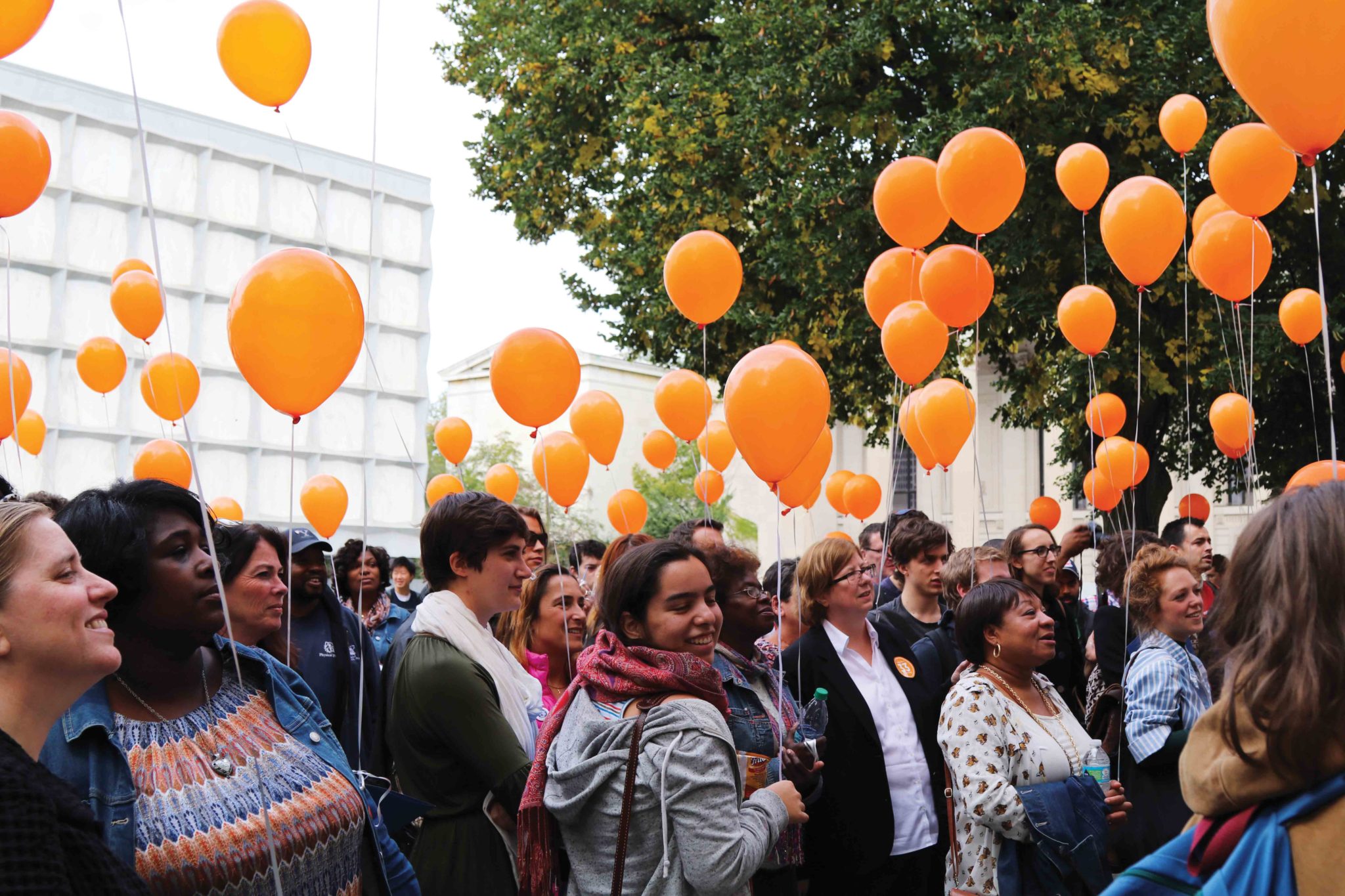
Last spring was a busy time for Yale’s graduate student union, Local 33.
In April and May, a rotating cast of graduate students staged a hunger strike outside Woodbridge Hall to protest Yale’s refusal to begin labor negotiations. Nearly two dozen union members were arrested for blocking several major intersections on undergraduate move-out day. And on the morning of Commencement, Local 33 marched through downtown New Haven before concluding the weekslong hunger strike with a pizza party in City Hall.
But with the legal landscape beginning to shift and Yale showing no signs of budging, Local 33 now faces a difficult question: What’s next?
After the protesting blitz, Local 33 largely stayed quiet over the summer, as union members left campus for vacation or caught up on dissertation research. Now that students have returned to Yale, the union is holding department-by-department meetings to determine its next steps, Local 33 Chair Aaron Greenberg GRD ’18 said.
On first-year move-in day last week, Greenberg and Local 33 Co-chair Robin Canavan GRD ’19 stood under a bright orange tent on College Street opposite Phelps Gate, handing out union fliers to students and parents.
“We’re getting back into the new semester, getting ready for classes to start, and yeah, catching up with folks after the summer,” Canavan said.
Asked whether the union is planning any major demonstrations for the new semester, Greenberg changed the subject: “Right now, we’re focused on talking to as many people as we can as they move in,” he said.
For now, the union’s legal dispute with Yale remains at a standstill. A spokesman for the National Labor Relations Board said the NLRB is still “actively considering” the University’s appeals challenging Local 33’s right to unionize in eight academic departments. The spokesman declined to say how long it would take for the board to reach a verdict.
Last February, the union held successful labor elections in eight departments — an unusual approach to graduate student unionization that has not been tested on other campuses.
After failing to block the departmental elections in labor court in Hartford, Yale refused to negotiate with the newly-certified union and challenged the legal basis of the elections in appeals to the NLRB. The hunger strike and protest march were designed to pressure the University to give up on those appeals and come to the bargaining table.
But Yale, which, like many other private universities, has opposed graduate student unionization for decades, refused to give ground.
“Having many small bargaining units would be an enormous added administrative burden that drains resources from supporting graduate programs,” Dean of the Graduate School of Arts and Sciences Dean Lynn Cooley said this week. “Such microunits are unprecedented in higher education and have not been pursued by unions at peer schools.”
Meanwhile, the partisan makeup of the NLRB has begun to change in ways that are likely to favor Yale. In the weeks following the hunger strike, President Donald Trump nominated two conservative lawyers to the NLRB, despite opposition from Democrats and organized labor.
On Aug. 2, the U.S. Senate voted along partisan lines to confirm the first of those picks, Marvin Kaplan, chief counsel of the Occupational Safety and Health Review Commission.
Trump’s second nominee — William Emanuel, a shareholder in the law firm Littler Mendelson and a member of the conservative Federalist Society — is still awaiting a Senate vote. If his nomination is approved, Republicans will hold a 3–2 majority on the NLRB.
A conservative labor board would likely overturn the August 2016 decision to allow graduate student unionization at private universities, said Dan Bowling, a labor expert at Duke School of Law.
“Yale’s in the better legal posture right now from a timing standpoint and from where I think the law will eventually end up,” Bowling said.
Greenberg declined to speculate on future NLRB decisions. But he said he remains disappointed in Yale’s refusal to negotiate with Local 33.
“The administration is deciding to wait on the Trump administration to challenge and strip away the legal rights and labor rights of thousands of workers, including us,” Greenberg said.
Still, the union remains a divisive topic among students in the Graduate School. Last October, the Graduate Student Assembly voted to remain neutral on the general topic of graduate student unionization but to oppose Local 33 and its departmental approach.
“A lot of people who would not necessarily be against having a union are weary of being represented by Local 33,” GSA Chair Wendy Xiao MED ’18 said. “Just as Local 33 is entitled to vote for the right to have a union, Yale is also legally entitled to appeal certain decisions. I do see this going for a long time.”
Local 33 was known as the Graduate Employees and Students Organization until spring 2016.
Kevin Swain | kevin.swain@yale.edu |
David Yaffe-Bellany | david.yaffe-bellany@yale.edu |







